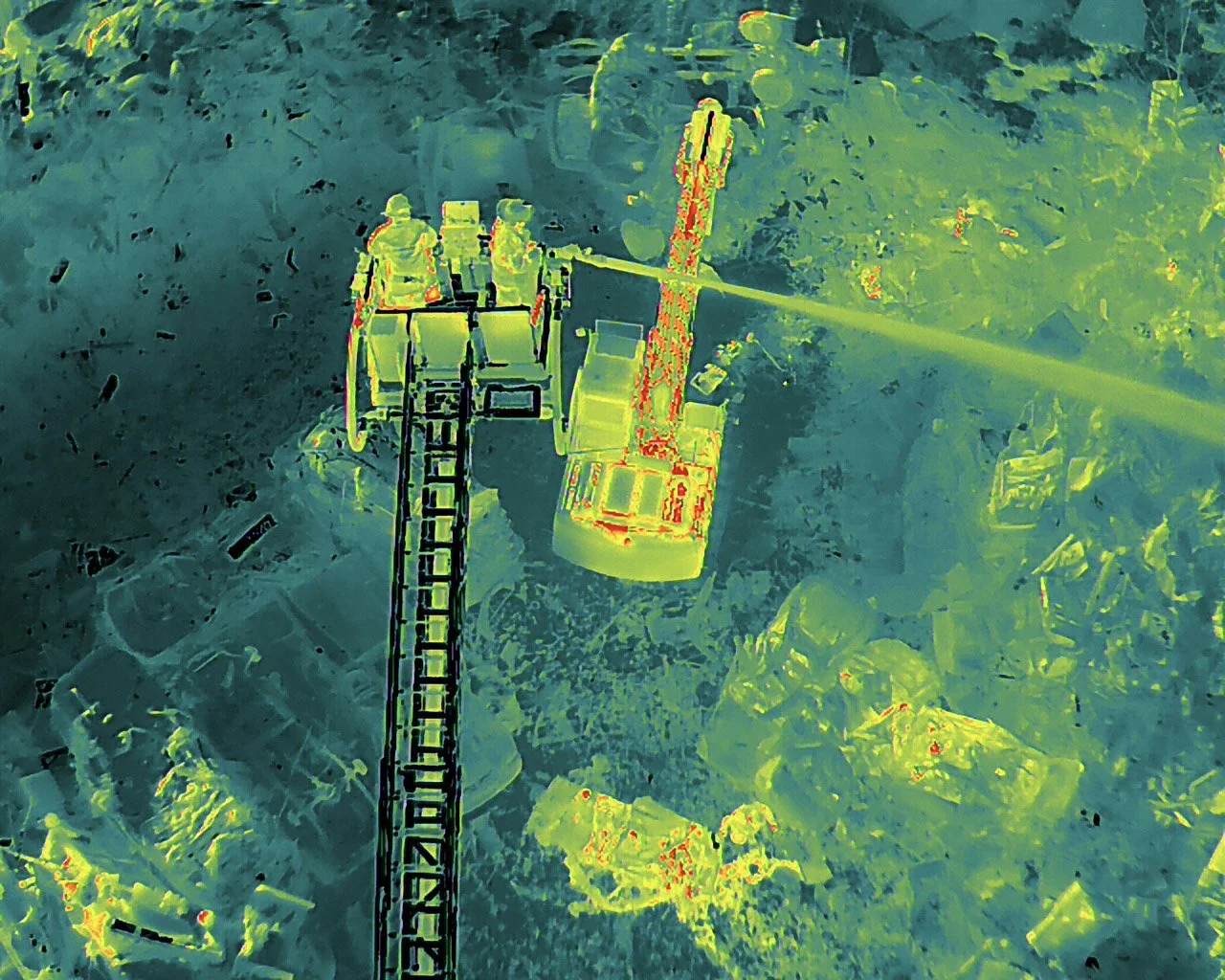Drone Ban Politics: How Lobbyists Are Hurting Local First Responders and Drone Startups
DJI Matrice M30 T overwatch on scrap yard fire.
Political Theater Over Practical Tools: Who Really Pays the Price of a DJI Ban?
Washington is once again considering sweeping bans on Chinese-manufactured drones, including models from DJI—the leading drone supplier for emergency responders and small business operators across the country. While the headlines talk about national security, the reality feels a lot more like corporate lobbying dressed up as patriotism.
For those of us in the field—responding to emergencies, finding missing persons or pets, mapping disaster zones—this policy shift feels deeply disconnected from reality.
The Truth Behind the Ban
The proposed executive orders would restrict or ban Chinese-made drones, based on vague or unproven national security risks. But what’s often left unsaid is the tremendous pressure being applied by U.S. defense contractors and drone startups, who stand to profit enormously if they can cut DJI out of the market through legislation—not innovation.
It’s less about security and more about eliminating competition.
These lobbying efforts may be well-funded, but they’re pushing unrealistic mandates that ignore the boots-on-the-ground needs of public safety agencies, especially small volunteer fire departments like:
Reno Volunteer Fire Department
Devola Volunteer Fire Company
And independent drone operators like MOV Drone Workz, who actively use DJI’s M30T for pet rescues, structure fires, and real-time thermal missions.
American-Made Drones? We Tried
We believe in buying American—and we’ve tried. But the truth is that domestic drones simply do not match the performance, durability, or affordability of DJI’s M30T.
Here’s what we’ve experienced from U.S.-made alternatives:
Heavier units with lower flight time
Inferior thermal cameras and sensor integration
High cost and slow support
Clunky software and deployment lag
For now, there is no American-built alternative that matches the M30T—especially at a price a small department or startup can afford.
Who Gets Hurt?
🔻 Volunteer departments: Forced to retire functional DJI drones with no clear replacement
🔻 Search-and-rescue teams: Stripped of tools that save lives
🔻 Drone startups: Priced out of the market before they ever get off the ground
🔻 Taxpayers: Stuck paying more for less effective tools
All while D.C. lobbyists cash checks from companies that haven’t earned their place in the field.
What Can You Do? Speak Up Before It’s Too Late
📬 Contact your elected officials. Let them know this ban will harm your community, not help it.
Find your House Rep: house.gov/representatives
Contact your Senators: senate.gov/senators
Be specific. Tell them:
DJI’s M30T is the only tool that fits your department's budget and operational needs
American drones are not yet up to par—and forcing this change prematurely is dangerous
We need incentives for domestic innovation, not bans that cripple field operations
Final Thought
The American drone industry deserves a chance to grow—but not at the expense of the communities that rely on proven tools today. We support U.S. innovation—but let it win through better products, not legislative shortcuts.
— Tom Sherman
MOV Drone Workz | Reno VFD | Devola Volunteer Fire Company


